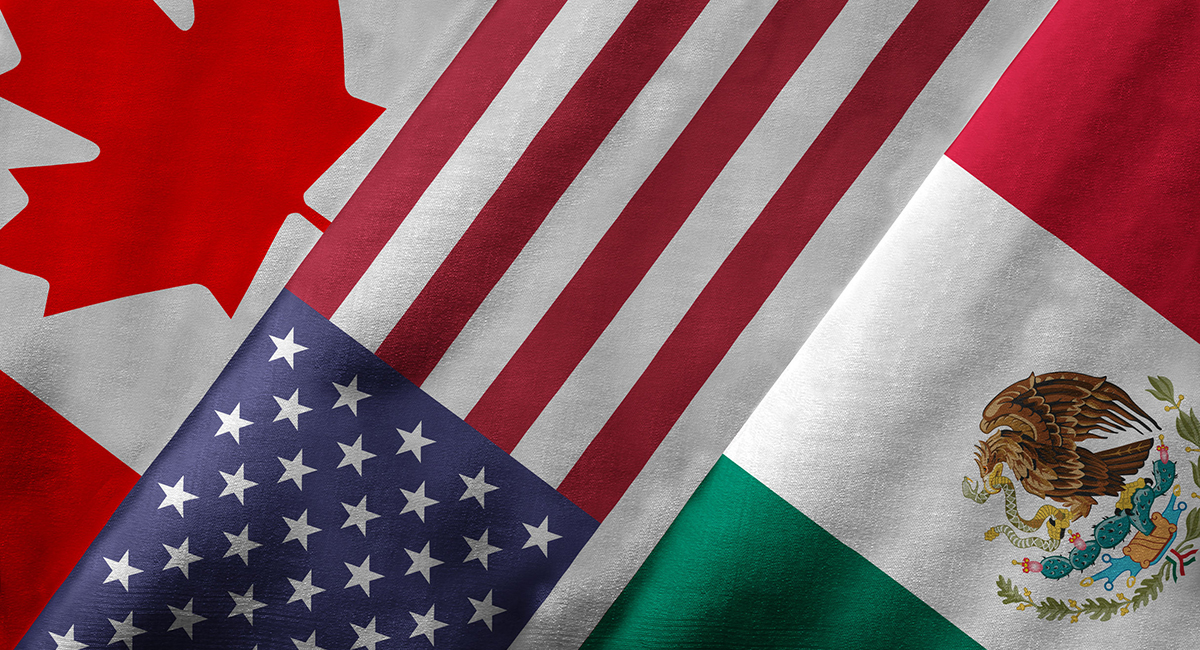Vicente Fox, Mexico’s incoming president, made a whirlwind trip to Canada and the U.S. last week to talk about his vision for the future of North America. Mr. Fox generated buzz everywhere with his ideas. His talk of open borders is deeply controversial in the U.S., though what he is really selling is the fulfillment of open markets. His proposal to combine resources across borders may strike some as too imaginative in its scope. But it is, in fact, steeped in pragmatism.
Convinced that the North American Free Trade Agreement has delivered substantial benefits on all sides since its inception in 1994, Mr. Fox wants to deepen the alliance. Beyond the free trade of goods and services, he would like to work toward a greater movement of people, so that resources, whether human, financial or material, are more efficiently utilized in the interests of all market participants. And realizing that Mexico’s vulnerability to economic instability has crippled its own development even as it has threatened international financial relations, he proposes that Mexico commit itself to achieving reduced levels of inflation and public debt on a par with the U.S.
Convergence
Mr. Fox’s approach, which one might call convergence by objective, would aim to bring down Mexico’s inflation from its current 9% to less than 3%, to match American and Canadian rates by 2003. Likewise, he would impose limits on deficit spending consistent with achieving a balanced budget in the same year. He would seek to strengthen the banking system and to bring Mexico’s regulatory approach into conformity with U.S. standards.
The benefits to Mexico, in terms of increased fiscal discipline and a fortified financial sector, would be tremendous. But for Mr. Fox, the real payoff would come from lower interest rates, which would lower the cost of capital for aspiring Mexican entrepreneurs. A long-time supporter of microcredits to provide seed money for small business, Mr. Fox believes strongly in the economic ingenuity of individuals.
Mexico’s problem has been its prohibitively high interest rates, which have cut off access to financial capital and stifled opportunity. Where inflation is rampant, there is little reason to save. And where currency depreciation undermines the gains on invested capital, foreign investors demand higher rates of compensation. By closing the gap on financial and monetary performance, Mr. Fox hopes to unleash private initiative within Mexico.
But what’s in it for us? First, there is increased stability. The peso meltdown in December 1994 imposed tremendous economic hardship on the Mexican people; in a country with less social cohesion, it might have led to serious political chaos. Sharing a 2,000-mile border gives the U.S. a vested interest in helping Mexico to achieve steady economic growth, increased employment and higher living standards.
The prospect of expanding U.S. exports to a neighboring country of 100 million consumers should have direct appeal for U.S. suppliers of goods and services. American manufacturers already reap the benefit of low-cost production facilities in Mexico; as a result, our consumers pay lower prices for cars and other finished goods that can be sold tariff-free on U.S. soil.
Arguments about lost American jobs fall flat in the face of record low unemployment in the U.S. Indeed, Mr. Fox points out that the low-inflation, high-growth performance of the U.S. economy is due partly to the fact that Mexican workers help relieve the high demand for labor—citing no less an authority than Federal Reserve Chairman Alan Greenspan.
Despite the obvious gains for Mexico, which has seen its exports to the U.S. and Canada grow to $133 billion from $45 billion under Nafta, and whose foreign direct investment has increased to $11.6 billion from $4.4 billion, Mr. Fox is taking some flak at home for his bold proposals. Grumbling among his political enemies is fueled by accusations that he should have secured a “consensus” before talking to foreign leaders about a North American union. They accuse Mr. Fox of catering to wealthy business interests on the subject of future monetary union, somehow missing the irony that currency depreciation helps big exporters; it is the average Mexican citizen who is penalized by cheapened money.
Emigration is a sensitive issue in Mexico, not just in the U.S., since it reflects the chronic poverty of the millions who feel forced to seek economic opportunity outside their own country. Unlike his predecessors, Mr. Fox refuses to ignore the reality of mass emigration. At the same time, he asserts strongly that the desire of Mexicans to work should be seen as a virtue. In seeking to increase levels of legal emigration—initially through an expansion of work permits from U.S. immigration authorities—Mr. Fox hopes to narrow the staggering difference in income levels that exist in North America.
His model for believing that genuine progress can be made is based on the success already enjoyed by Spain, Ireland and Portugal as the result of their membership in the European Union. A vastly better performance on inflation and interest rates has resulted in impressive economic growth in these countries, once Europe’s economic laggards. Mr. Fox notes too that the free flow of people across intra-European borders has been a major factor in the optimal economic use of all resources. Among the experts who have helped him to spot a similar growth opportunity for Mexico is Robert Mundell, the Nobel laureate for economics.
What makes Mr. Fox so intriguing as a leader is his ability to blend theory with reality. As a former Coca-Cola executive, he has a gift for making a sale; he will need it to persuade the U.S. and Canada to join him in pursuing his dream of truly open markets. Salesmanship is nothing without substance, of course. But Mr. Fox need only point out that the just-concluded Jackson Hole conference of central bankers and economists was devoted to the theme of global economic integration.
True Empowerment
Mr. Fox will undoubtedly be accused of fomenting political power shifts and jeopardizing national sovereignty. Fidel Castro has already hinted that the Mexican president-elect is playing into the hands of U.S. imperialists who intend to exploit his quest for more open borders by subjugating Mexico. What the Marxists don’t understand is this: Mr. Fox does, indeed, want to shift economic power. Not from one nation to another, though, but rather from government to the people.









